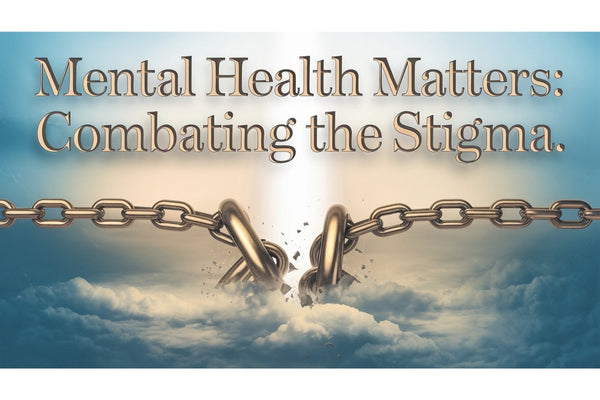
Mental Health Matters: Combating the Stigma
Share
Mental health is an integral aspect of our overall well-being, yet it's often shrouded in stigma and misunderstanding. The reluctance to discuss mental health openly can have detrimental consequences for those who struggle with various conditions. In this blog post, we will delve into the importance of acknowledging the significance of mental health and discuss ways to combat the pervasive stigma that surrounds it.
- The Prevalence of Mental Health Issues
Mental health issues are not rare. They affect millions of people worldwide. From anxiety and depression to more severe conditions like schizophrenia, mental health disorders can touch anyone's life, directly or indirectly.
- The Stigma Surrounding Mental Health
Stigma is a significant barrier to addressing mental health issues. It can manifest in various ways, from discrimination and social exclusion to self-stigmatization. It's essential to recognize that these stigmas are unfounded and harmful.
- The Impact of Stigma
Stigma has far-reaching consequences. It discourages individuals from seeking help when they need it most, perpetuates feelings of shame and isolation, and perpetuates the misconception that mental health issues are a sign of weakness.
- The Need for Open Conversations
Open conversations about mental health are crucial. It's essential to foster an environment where individuals feel safe discussing their experiences and seeking help without judgment.
- Normalizing Mental Health Care
We must normalize mental health care, just as we do for physical health. Regular mental health check-ups should be as routine as annual physical exams, and discussing mental health should be a natural part of everyday conversations.
- Challenging Misconceptions
Challenging misconceptions is a fundamental part of combating stigma. Education and awareness can help dispel myths and replace ignorance with understanding.
- Encouraging Empathy and Compassion
Empathy and compassion go a long way in supporting individuals dealing with mental health issues. By offering a listening ear and understanding, we create an environment where people feel valued and accepted.
- Advocating for Policy Changes
Advocating for changes in mental health policies is essential. This includes increasing access to mental health care, ensuring insurance coverage, and addressing systemic barriers to care.
Conclusion: A Path to a Stigma-Free Society
Combatting the stigma surrounding mental health is not only an ethical responsibility but also a practical one. It's essential for the well-being of individuals, families, and communities. By acknowledging that mental health matters, we can pave the way for a society where individuals can seek help without fear of judgment, where mental health care is accessible, and where empathy and understanding prevail. Together, we can work toward a stigma-free society that values mental health as much as physical health.
